I have been away, travelling to the far land of Asheville, North Carolina, in the Blue Ridge Mountains to attend an herbal conference, Medicines of the Earth 2017. This conference is given yearly, the first weekend of June. Going to Asheville is like coming home to my tribe. After spending the past year practicing largely traditional western/allopathic medicine, it brightens my heart to be among people who are knowledgeable and wise in the use of herbal treatments. If anyone has any doubts about the use of herbal medicine, come to Asheville. Listen with an open mind. Learn how to differentiate and understand the research that is currently happening around the world on plants. Even if you Google an herb, put “NIH” next to your question, and you will get actual research from the National Institutes of Health, not just infomercials. Note, there is a lot of bias in research in general, and herbal medicine specifically since there are generally no herbalists on the panel conducting the research. That said, herbal research is expanding worldwide.
When I go to a conference like this, I always ask myself what was my own take home message. This year it is the importance of really listening to your body’s circadian rhythm. The circadian rhythm is the cycle of growth, repair, and destruction and wear that our bodies accomplish over a 24-hour cycle. We are part of many cycles: lunar, menstrual, hormonal, yearly, and seasonal. When we buck against our own circadian cycle, it causes increased stress in the body, increases the destruction cycle, and does not allow for the healing to occur. Does this sound familiar to anyone? How about shift workers, hospital workers, police and firemen? Students staying up to study. Artists saying, they do their best work at night? Moms with young children staying up just to get some alone time. Those of us with poor sleep patterns, looking at phone messages at 3 am.
The stress response is when your body releases a hormone called cortisol. Cortisol is what helps your body to be able to respond to stress. However, this hormone is only supposed to be released short term; then your body is supposed to return to its natural state of relaxation. Medically, this is when the sympathetic nervous system returns to the parasympathetic nervous response. Unfortunately, when we do not listen to our 24-hour circadian rhythm cycle, cortisol is constantly released, causing breakdown of muscle, abdominal obesity, high blood pressure, thyroid dysregulation and more.
This year’s Medicines of the Earth offered a series of lectures by Dr. Mary Bove, ND on Resetting the 24 Hour Circadian Cycle and Donald Yance, RH(AHG) on The Vagus Nerve: A Two-way Connection: the Brain’s Effect on Immunity and Gut Health: Botanical and Lifestyle Therapies. Note, the vagus nerve is the nerve that runs from your brain, touching essentially every organ all the way down to your rectum. This is the main regulator of your calming parasympathetic system.
What I found interesting was how many of the same herbs can be used to benefit the healing of your stress response and health concerns associated with stress. Primarily, a family of herbs called Adaptogens and Nervines can be used. Adaptogens are those herbs that are used to lessen the stress/cortisol effect on the body, help with healing of tissues, and minimize your physiologic response to stress by regulating the hypothalamus-pituitary-adrenal axis. A Nervine is a plant that has a beneficial effect upon the nervous system. There are three kinds of Nervines: relaxants, nervine stimulants, and nervine tonics. Commonly, Adaptogens and Nervines are used together to support the stress response itself and the effect of being wired and unable to relax. Both can help with getting better sleep and allowing your body to either acclimate if one must stay up late, or help you work toward a healthier sleep-wake cycle.
The other big take home for me was the use of pre and probiotics to heal the gut and, hence, heal the brain. Probiotics are the good bacteria found in our gut that send healthy signals to our brain and body. They also create the same chemicals as serotonin and dopamine that your brain does. The phrase having a “gut reaction” is very real. Prebiotics are those substances that help feed the probiotics. Adding foods that are fermented, yogurts, Kefir, or supplementing with a multi-strain probiotic is helpful. Prebiotic foods include sunchokes, globe artichokes, asparagus, garlic and onions, chicory root, burdock root and dandelion root, bananas, whole wheat, rye and barley.
Ultimately, try to go to bed when it becomes dark. Minimize light sources in your bedroom. Use room-darkening shades if you do shift work. Minimize/stop electronics in your bedroom. Keep the room slightly cool. Have a night time ritual of winding down, stopping the news or exciting TV just before bed. Limit alcohol; it worsens the quality of sleep. A calming bath of Epsom salts with a few drops of Lavender essential oil can be helpful. Discuss with a trained herbalist which Adaptogens and or Nervines would be best for you. Actively choose to limit the wear and tear of your body by allowing it to repair and restore during the night as nature planned.


